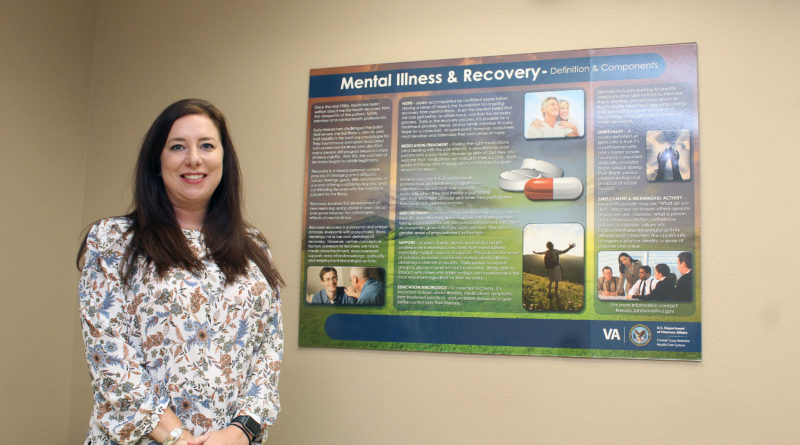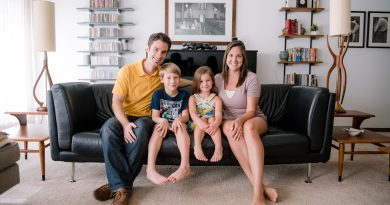Finding the positive side of COVID-19
VA mental health chief shares a connection with veterans
Story and photos by Brandy Cruz
Dr. Stacy Ritz discovered her passion for working with veterans suffering from combat trauma 14 years ago after interning as a frontline psychologist for service members and veterans suffering from post-traumatic stress disorder.
“It’s always been a passion to be able to care for people who have cared for us and serve people who have served us,” Ritz said.
Not long after starting her current position as the chief of Mental Health and Behavioral Medicine for the Central Texas Veterans Affairs Healthcare System, the unforeseen COVID-19 pandemic took the country by storm, and threw a wrench in traditional patient care.
“In the past two years and certainly in the context of a pandemic, we’ve really been challenged to creatively continue to care for veterans, but also in how to outreach to people during a time when people were feeling pretty isolated,” she said.
Ritz explained that the Central Texas VA Healthcare System quickly began treating patients through VA Video Connect, a secure telehealth video conferencing program designed to provide face-to-face care remotely. While telehealth may not work for all types of health treatment, Ritz said her patients have responded positively.
“We adjusted the way we provided treatment and found that our veterans really liked that. It really has allowed us to outreach to veterans in more rural areas,” she said. “We also found that it really increased access for veterans who work, have obligations in the home or have mobility issues. It’s really hard for them to come to the VA regularly.”
This form of treatment has also proven to be beneficial to patients who felt isolated during the COVID-19 lockdown because they were able to continue their care from the comfort of their own homes.
Ritz said they had peer support specialists who would call veterans to determine if there was anything the VA could help them with during the pandemic. She said the goal was to let people know they do not have to feel isolated, there are ways to connect with people, even those seeking group therapy, because they were able to continue that outpatient therapy via VA Video Connect. Through these outreach efforts, care to rural veterans increased by as much as 15% in some counties.
“We have intensive outpatient groups,” she said. “People were still able to be in groups and still able to be with the same group of people, so they still had the bonding experience, but they were able to do it safely in their own home.”
Ritz said that while the pandemic forced people to slow down, it also brought mental health to the forefront in society, as some people discovered they had some issues they needed to address. She said the Central Texas VA Healthcare System also took the opportunity to work on issues of their own, in particular, women’s health.
“Central Texas has one of the largest female veteran populations in the country,” she said. “We’re expanding gender-specific services. We have our exclusive female residential program in Waco and have gender specific outpatient programming available at all our sites.”
Explaining that the program focuses on specific topics related to female health, she is excited about the opportunity to focus treatment on the often neglected female veteran.
“It’s an exciting thing for me,” she said about the gender specific programming. “It’s a population that can be overlooked a bit.”
Veterans can receive care at their nearest Central Texas VA Healthcare System in Temple, Waco, Austin, La Grange, Palestine, Brownwood, College Station and Cedar Park. They can also connect with the VA through VA Video Connect.
“To be able to make systemic changes that doesn’t just impact one person, but can impact a group of people that I care very deeply about, is very rewarding,” she said. “It’s not an easy job, but that’s the sort of thing that keeps me going.”




